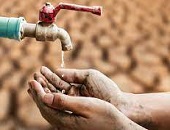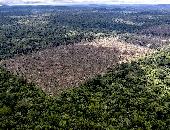Managing Water Risk
Flooding, drought, and the polluted quality of water pose a business risk to the agricultural sector, which affects everything from geopolitical risk to inflation. What is the cause of water risk, and how can it be mitigated? On October 3, 2023, Catherine David, Director of Collaboration and Change at Waste and Resources Action Programme (WRAP) and a specialist in water risk, spoke about water management designed for sustainability. The webinar was sponsored by the Global Association of Risk Professionals (GARP) and was moderated by Jo Paisley, President, GARP Risk Institute. “According to the FAO,” David said, “by 2030, global demand for […]
The Future of Work
Now that the Covid-19 pandemic fears are receding, what is happening to the average workplace—will it become more or less virtual? Will some workers prefer to continue working from home and refuse to commute? As for generative AI—how will that change the future of work? “There will always be work to do, but it will be different from the work we know now,” said Mary C. Daly, President and CEO of the U.S. Federal Reserve Bank of San Francisco (FRBSF), known informally as “the Fed.” She was the introductory speaker on September 8, 2023, at a presentation outlining the Fed’s […]
The Greenium
Does the average household want to invest in climate-friendly assets? If so, what proportion of assets are earmarked for green investments? What kinds of assets (equity or fixed income) are preferred? “Green investments are popular, but only about one-third of German households have some kind of green account,” said Monika Piazzesi, Professor of Economics at Stanford University. She was speaking at a webinar titled “Household Climate Finance: Theory and Survey Data on Safe and Risky Green Assets,” held on September 7, 2023, as part of the Virtual Seminar on Climate Economics sponsored by the Federal Reserve Bank of San Francisco (FRBSF). Her […]
Shelter Inflation
The welcome news this summer is that the overall rate of inflation is easing up, both in the U.S., where it has dropped to its lowest level in over two years, and to a lesser extent, in Canada, where in July, Canada’s inflation rate fell to 2.8 percent. Gasoline is pulling the inflation rate down, while food and mortgages were pushing it up. How has the U.S. housing market responded to the rise in interest rates? How do recent trends in the cost of house prices and rents affect the likelihood of future shelter inflation? “Various market indicators, including house […]
Heat Lowers the GDP
Every season, but particularly summer, reminds us that global warming is occurring at an alarming rate. The average global temperature will continue to rise over time if people do not take substantial action to reduce greenhouse gases, especially carbon emissions. What effect will soaring temperatures have on economic productivity? How will warming effects be distributed over the globe? Will these have a long-lasting effect on the GDP? Recent research by economists at the Federal Reserve Bank of San Francisco (FRBSF) delves into these questions. “Our findings show that total global losses in output per person could be substantial,” say the […]
The Meerkat Way
Given that climate change is the biggest economic upheaval of our age, what can risk professionals do? What, exactly, is meant by a “net-zero transition,” and why does each organization need a transition plan to reach it? How should risk professionals get started? On May 23, 2023, the membership of the Global Association of Risk Professionals (GARP) was invited to a one-hour webinar titled “Net-Zero Transition Plans” that promised to answer these questions and more. Tony Rooke, Executive Director and Head of Transition Finance at the Glasgow Financial Alliance for Net Zero (GFANZ), delivered the webinar. GFANZ is a global […]
Carbon Pricing
What is the best way to address climate change? If too much carbon is released in the air, how can emissions be reduced? By regulating corporations or by imposing costs on consumers in the form of a carbon tax? Moreover, even if a solution is found, not all nations, and not all people within nations, will agree on how to tackle the problem. In the words of Professor Barry Rabe, author of Can We Price Carbon? “Compelling ideas from economics do not necessarily suspend the laws of politics.” On May 4, 2023, Jessica Green, professor of political science at University […]
Heated Exchange
Climate-related natural disasters are increasing in frequency and severity and costs. Since climate change is not equal across countries, how does a country’s exchange rate respond to such shocks? Furthermore, is it possible to build an economic model to predict future changes? On April 6, 2023, Galina Hale, professor of economics at the University of California at Santa Cruz, delivered a webinar about the effect of climate change on exchange rates. This was part of the series of talks sponsored by the Federal Reserve Bank of San Francisco (FRBSF), titled the Virtual Seminar on Climate Economics. She reported results from […]
Green Stocks vs. Brown
Comparing the stock prices of climate-friendly (“green”) companies versus non-climate-friendly (“brown”) companies, which type will give better performance? Has this prediction been changing over the past decade—and why? And what are the recent pressures? On March 23, 2023, Michael Bauer, professor of economics at the University of Hamburg, delivered a webinar on green vs. brown stocks as part of the series of talks sponsored by the Federal Reserve Bank of San Francisco (FRBSF), titled the Virtual Seminar on Climate Economics. He reported results from a recent paper co-authored with three other economists appearing in the Journal of Climate Finance. Bauer […]
The Forest Awakens
The Amazon rainforest is an iconic world ecosystem often referred to as “the lungs of the planet.” Yet it is being destroyed day by day. What systems are in place to monitor loss of valuable ecosystems? How effective are these systems? In 2019, the United Nations announced the “UN Decade on Ecosystem Restoration.” This international body estimates that restoration of 350 million hectares of degraded land between now and 2030 could generate USD 9 trillion in ecosystem services and take an additional 13-26 gigatons of greenhouse gases out of the atmosphere, gases that are warming the planet. On March 9, […]










